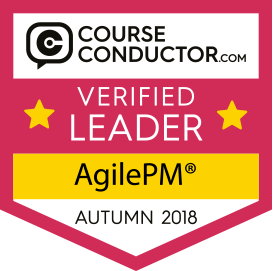
Introduction
Effective project management is essential for success. PMO consulting offers a strategic approach to optimise project delivery. A Project Management Office (PMO) serves as a centralised hub for overseeing and coordinating projects within an organisation. PMO consultants bring expertise to establish or enhance these structures, ensuring alignment with business objectives.
This article explores:
- The core functions of PMO consulting
- Benefits for professional service firm
- Implementation across various industries
- Best practices for success
- Top PMO consulting firms.
We’ll examine how PMO consulting can transform project outcomes, streamline processes, and drive organisational growth. Whether you’re considering implementing a PMO or seeking to improve an existing one, this guide provides valuable insights for leveraging PMO consulting to achieve project excellence.
Understanding PMO consulting
What is a PMO?
A Project Management Office (PMO) is a strategic entity within an organisation that oversees project management processes. It serves as a centralised hub for coordinating and standardising project-related activities.
Core functions and responsibilities
- Developing and maintaining project management standards
- Providing project management tools and methodologies
- Monitoring project performance and reporting
- Managing resource allocation across projects
- Ensuring alignment of projects with business objectives.
Types of PMOs
- Supportive: Provides templates, best practices, and training
- Controlling: Ensures adherence to standards and methodologies
- Directive: Takes direct control of projects and their management.
The role of PMO consultants
PMO consultants are external experts who guide organisations in establishing or improving their PMO functions.
Expertise and skills
- In-depth knowledge of project management methodologies
- Strong analytical and problem-solving abilities
- Excellent communication and leadership skills
- Understanding of various industries and their specific challenges.
Services offered
- PMO setup and implementation
- Process improvement and standardisation
- Training and skill development for internal teams
- Change management and organisational alignment
- Performance measurement and reporting systems implementation.
PMO consultants bring valuable external perspectives and industry best practices to organisations. They help tailor PMO structures to specific business needs, ensuring optimal project management efficiency and effectiveness. By leveraging their expertise, companies can accelerate PMO maturity and achieve better project outcomes.
Benefits of PMO consulting
PMO consulting offers numerous advantages for all organisations. By implementing effective Project Management Office strategies, organisations can significantly enhance their project delivery capabilities.
Improved project success rates
PMO consulting helps increase project success rates by:
-
Establishing clear project governance structures
- Implementing risk management protocols
- Enhancing stakeholder communication
- Providing consistent project oversight and support.
These measures lead to more projects completed on time, within budget, and meeting quality standards.
Enhanced resource management
Effective resource allocation is crucial for professional service firms. PMO consultants assist by:
- Developing resource forecasting models
- Implementing resource management tools
- Optimising resource utilisation across projects
- Identifying and addressing skill gaps.
This results in improved productivity and reduced resource conflicts.
Standardised processes and methodologies
PMO consulting introduces consistent approaches to project management, including:
- Uniform project planning and execution methods
- Standardised reporting and documentation templates
- Consistent quality assurance processes
- Streamlined change management procedures.
These standardised practices enhance efficiency and reduce errors across projects.
Better alignment with organisational strategy
PMO consultants ensure projects align with business objectives by:
- Developing project prioritization frameworks
- Implementing portfolio management techniques
- Establishing project selection criteria
- Creating strategic roadmaps for project execution.
This alignment ensures resources are invested in initiatives that drive organizational growth.
Increased efficiency and cost savings
PMO consulting leads to improved efficiency and reduced costs through:
- Developing project prioritisation frameworks
- Automation of routine project management tasks
- Improved project planning and estimation
- Enhanced financial tracking and control.
These improvements result in significant cost savings and increased profitability for professional service firms.
By leveraging PMO consulting services, professional service organisations can transform their project management capabilities. This leads to improved project outcomes, enhanced resource utilisation, and stronger alignment with strategic goals.
PMO consulting across industries
PMO consulting adapts to various professional service sectors, addressing unique challenges and optimising project management practices. Let’s explore its application in three key industries.
Engineering and construction
In the engineering and construction sector, PMO consulting plays a crucial role in managing complex, large-scale projects.
Case study: Large-scale infrastructure projects
A major construction firm enlisted the support from PMO consultants for a multi-billion-pound railway expansion project. The PMO established a centralised project control system and implemented rigorous risk management protocols. It coordinated multiple subcontractors and stakeholders while ensuring compliance with regulatory requirements.
Industry-specific challenges and solutions
PMO consultants address challenges such as long project lifecycles, strict safety and regulatory compliance, resource-intensive operations, and fluctuating material costs. Solutions include advanced scheduling techniques, integrated safety management systems, and dynamic resource allocation models.
IT services and software development
In IT services, PMO consulting focuses on agility and rapid delivery while maintaining quality.
Case study: Agile methodology implementation
A software development company engaged PMO consultants to transition to Agile methodologies. The PMO developed a hybrid Agile-traditional project management framework and implemented Scrum and Kanban practices across teams. It also established metrics for measuring Agile performance and trained staff in Agile principles and practices.
Addressing technology-specific issues
PMO consultants in IT tackle challenges like rapidly changing technologies, cybersecurity concerns, integration of legacy systems, and continuous delivery expectations. Solutions include DevOps practices, automated testing frameworks, and adaptive planning techniques.
Business consulting and fundraising
In business consulting, PMO services focus on optimising client-facing processes and internal operations.
Case study: Optimising grant-making processes
A philanthropic organisation sought PMO consulting to streamline its grant-making process. The PMO developed a standardised grant application and review system and implemented portfolio management for grant projects. It established impact measurement frameworks and improved reporting and transparency for stakeholders.
Tailoring PMO services for consulting firms
PMO consultants address industry-specific challenges such as balancing multiple client projects, managing diverse teams of specialists, ensuring consistent quality across engagements, and aligning projects with strategic business development. Solutions include resource optimisation tools, knowledge management systems, and client-centric project governance frameworks.
Enlisting PMO consulting services
Establishing a Project Management Office (PMO) through consulting services requires a structured approach and careful consideration of organisational needs. This section outlines the key steps and considerations for successful PMO implementation.
Steps for setting up a PMO
Analysing the current situation
The first step involves a thorough assessment of the organisation’s existing project management practices. PMO consultants evaluate current processes, identify gaps, and determine areas for improvement. This analysis provides a foundation for tailoring the PMO to the organisation’s specific needs.
Creating a comprehensive plan
Based on the initial analysis, consultants develop a detailed implementation plan. This plan outlines the PMO’s structure, roles, responsibilities, and key performance indicators. It also includes a timeline for phased implementation and resource requirements.
Implementing the plan
The implementation phase involves rolling out the PMO in stages. Consultants work closely with the organisation to establish new processes, introduce tools, and provide training. Regular checkpoints ensure the implementation stays on track and allows for necessary adjustments.
Key considerations
Choosing the right PMO model
Organisations must select a PMO model that aligns with their goals and culture. Options range from supportive models that provide guidance to directive models that exert more control over projects. The chosen model should balance organisational needs with existing project management maturity.
Securing leadership support
Executive buy-in is crucial for PMO success. Consultants work to demonstrate the PMO’s value to senior leadership, ensuring ongoing support and resources. This support is essential for driving change throughout the organisation.
Overcoming resistance to change
Implementing a PMO often involves significant organisational change. Consultants employ change management strategies to address resistance and foster acceptance. This includes clear communication, stakeholder engagement, and showcasing early wins to build confidence in the new PMO.
By following these steps and addressing key considerations, organisations can effectively implement PMO consulting services, leading to improved project management practices and outcomes.
Best practices for successful PMO consulting assignments
To maximise the effectiveness of PMO consulting, organisations should adhere to several key best practices. These strategies ensure that the PMO delivers value and remains aligned with the company’s goals.
Tailoring services to industry-specific needs
Successful PMO consultants recognise that each industry has unique requirements. They adapt their approach to address sector-specific challenges, ensuring that the PMO structure and processes are relevant and effective for the organisation’s context.
Fostering a culture of continuous improvement
A thriving PMO embraces ongoing refinement. Consultants should establish mechanisms for regular evaluation and adjustment of PMO practices. This approach ensures the PMO remains effective as the organisation evolves.
Leveraging technology and tools
Modern PMOs benefit from advanced project management software and analytics tools. Consultants should recommend and implement appropriate technologies that enhance project visibility, streamline processes, and provide valuable insights for decision-making.
Focusing on communication and collaboration
Effective PMOs facilitate clear communication across all levels of the organisation. Consultants should establish robust channels for sharing information and encourage collaborative problem-solving among project teams and stakeholders.
Investing in training and development
A successful PMO relies on skilled professionals. Consultants should develop comprehensive training programmes to enhance the capabilities of PMO staff and project managers. This investment ensures the organisation can maintain and improve its project management practices long after the consultants have departed.
By adhering to these best practices, PMO consultants can deliver significant value to their clients. These strategies create a foundation for sustainable improvement in project management capabilities, leading to enhanced organisational performance and competitive advantage.
Challenges and pitfalls in PMO consulting
Common obstacles faced by PMO consultants
PMO consultants often encounter resistance to change within organisations. Stakeholders may perceive the PMO as bureaucratic or threatening to their autonomy. Limited resources and unrealistic expectations can also hinder progress. Additionally, inconsistent executive support may undermine the PMO’s authority and effectiveness.
Strategies for overcoming challenges
To address these obstacles, consultants should focus on demonstrating tangible value early in the implementation process. Developing strong relationships with key stakeholders and aligning PMO objectives with organisational goals are crucial. Consultants should also advocate for adequate resources and set realistic timelines for PMO maturity.
Avoiding common mistakes in PMO implementation
Common pitfalls include over-engineering processes, neglecting cultural factors, and failing to adapt to organisational needs. To avoid these mistakes, consultants should:
- Start with essential processes and gradually expand.
- Conduct thorough cultural assessments before implementation.
- Regularly gather feedback and adjust the PMO approach accordingly.
- Focus on building internal capabilities for long-term sustainability.
By anticipating these challenges and proactively addressing them, PMO consultants can increase the likelihood of successful implementations. This approach leads to more effective and sustainable Project Management Offices that deliver lasting value to organisations.
Future of PMO consulting
Emerging trends and technologies
The future of PMO consulting is shaped by technological advancements and changing business landscapes. Artificial intelligence and machine learning are increasingly integrated into project management tools, offering predictive analytics and automated decision-making support. Cloud-based solutions enable real-time collaboration and data accessibility, enhancing PMO effectiveness across dispersed teams.
Evolving role of PMO consultants
PMO consultants are transitioning from process experts to strategic advisors. They are expected to provide insights on portfolio optimisation, resource allocation, and value creation. The focus is shifting towards agile methodologies and adaptive planning, requiring consultants to blend traditional and innovative approaches.
Predictions for the industry
The PMO consulting industry is likely to see increased demand for specialists in digital transformation and change management. Consultants will need to develop expertise in data analytics and cybersecurity to address emerging project risks. The industry may also witness a rise in virtual PMOs, leveraging remote work trends to provide flexible, scalable solutions.
As organisations continue to recognise the value of effective project management, PMO consulting will play a crucial role in driving business success and innovation.
Conclusion
Enlisting PMO consultants offers significant value to organisations seeking to enhance their project management capabilities. Throughout this article, we’ve explored the key aspects of PMO consulting, including its benefits, implementation strategies, and industry-specific applications. We’ve also examined best practices, challenges, and future trends in the field.
The value of PMO consulting lies in its ability to drive organisational efficiency, improve project success rates, and align project outcomes with strategic goals. As businesses face increasing complexity and competition, effective project management becomes crucial. PMO consultants provide the expertise and objectivity needed to establish robust project management frameworks and foster a culture of continuous improvement.
By leveraging PMO consulting services, organisations can position themselves for long-term success in an ever-evolving business landscape. The investment in PMO consulting can yield substantial returns through enhanced productivity, reduced risks, and improved stakeholder satisfaction.
Contact Knowledge Train today to find out how our PMI consultants can help your organisation assess its project, programme, and portfolio maturity, design and implement its PMO and achieve more successful projects.
FAQs
What qualifications should I look for in a PMO consultant?
Look for certifications like PMP or PRINCE2, along with extensive experience in project management and consulting. Industry-specific knowledge is also valuable.
How long does it typically take to implement a PMO?
A PMO oversees multiple projects, while a project management team focuses on specific project execution.
What skills are essential for PMO professionals?
Implementation time varies, but typically ranges from 3-12 months, depending on the organisation’s size and complexity.
Can small professional services firms benefit from PMO consulting?
Yes, PMO consulting can be scaled to benefit firms of all sizes, improving project efficiency and outcomes.
What’s the difference between a PMO consultant and a project manager?
PMO consultants focus on establishing and improving project management frameworks, while project managers oversee specific projects.
How do I measure the ROI of PMO consulting services?
Measure improvements in project success rates, resource utilisation, and alignment with strategic goals.
Can PMO consulting help with remote or distributed teams?
Yes, PMO consultants can implement strategies and tools to enhance collaboration and efficiency in remote work environments.
Infographic









